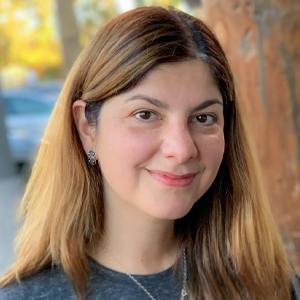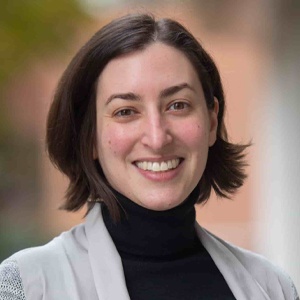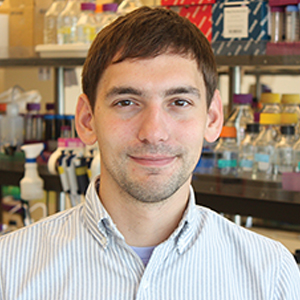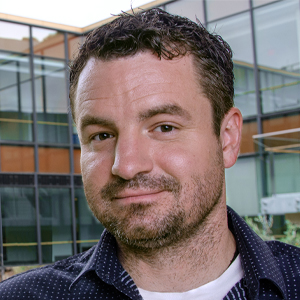ASBMB members recognized as Allen investigators
Ileana Cristea, Sarah Cohen, Itay Budin and Christopher Obara are among 14 researchers selected as Allen Distinguished Investigators by the Paul G. Allen Family Foundation. The awards, which total $9 million, $1.5 million per project, will support research on organelle communications and membrane formation, function and behavior.

Ileana M. Cristea, a professor of molecular biology at Princeton University, investigates the intersection of virology and proteomics. Her team showed that viruses can alter organelle connections in a host’s cells. To determine the underlying causes and consequences of this virus-induced organelle network, they will develop novel tools to monitor and manipulate organelle connections in cells at varying distances from viral infection sites. Cristea is the editor-in-chief of the American Society for Biochemistry and Molecular Biology journal Molecular & Cellular Proteomics.

Sarah Cohen is an associate professor of cell biology and physiology at the University of North Carolina at Chapel Hill School of Medicine. Her lab studies how lipids move within and between cells. Furthermore, the lab uses cutting-edge microscopy techniques, such as live cell imaging and super-resolution microscopy, to understand how defects in lipid trafficking contribute to metabolic and neurodegenerative diseases. The project will establish imaging and computational tools to explore features of organelle–organelle interactions and their impact on stem cell differentiation.

Itay Budin, assistant professor of chemistry and biochemistry at the University of California, San Diego, and Christopher Obara, assistant professor of pharmacology, chemistry & biochemistry also at the University of California San Diego, plan to develop visualization and tracking approaches to observe the transfer of lipids between organelles, providing insights into the architecture of these events and their impact on organelle membrane functions. Cristea has received major honors, including a National Institute of Health Avant Garde Award, the Human Proteome Organization Discovery Award in Proteomic Sciences and the American Chemical Society Early Career Award in Mass Spectrometry.

Budin’s lab uses biophysical, engineering and chemical approaches to understand the inner workings of cell membranes and their lipid building blocks. He won the ASBMB Walter A. Shaw Young Investigator Award and the Journal of Biological Chemistry/Herbert Tabor Young Investigator Award. In addition, Budin received a National Science Foundation CAREER Award and the Revelle College Outstanding Teaching Award from UCSD.
Obara’s lab focuses on understanding the complex signaling and communication that happens between organelles inside of single human cells in response to their environment. He earned his Ph.D. in microbiology and immunology at Georgetown University and completed postdoctoral training at the National Insitutes of Health and the Howard Hughes Medical Insitute Janelia Research Campus.
The Allen Distinguished Investigators program was launched in 2010 by the philanthropist Paul G. Allen to back creative, early-stage research projects in biology and medical research.
“These investigators will expand the frontiers of our basic science understanding of cell dynamics through ambitious and innovative approaches that span the tree of life, from single-celled amoebae to human cells, with important implications for human health,” Kathy Richmond, executive vice president and director of the Frontiers Group and the Office of Science and Innovation at the Allen Institute, said.
Enjoy reading ASBMB Today?
Become a member to receive the print edition four times a year and the digital edition monthly.
Learn moreGet the latest from ASBMB Today
Enter your email address, and we’ll send you a weekly email with recent articles, interviews and more.
Latest in People
People highlights or most popular articles

Building a career in nutrition across continents
Driven by past women in science, Kazi Sarjana Safain left Bangladesh and pursued a scientific career in the U.S.

Kiessling wins glycobiology award
She was honored by the Society for Glycobiology for her work on protein–glycan interactions.

2026 ASBMB election results
Meet the new Council members and Nominating Committee member.

Simcox wins SACNAS mentorship award
She was recognized for her sustained excellence in mentorship and was honored at SACNAS’ 2025 National Conference.

From humble beginnings to unlocking lysosomal secrets
Monther Abu–Remaileh will receive the ASBMB’s 2026 Walter A. Shaw Young Investigator Award in Lipid Research at the ASBMB Annual Meeting, March 7-10 in Washington, D.C.

Chemistry meets biology to thwart parasites
Margaret Phillips will receive the Alice and C. C. Wang Award in Molecular Parasitology at the ASBMB Annual Meeting, March 7-10 in Washington, D.C.

